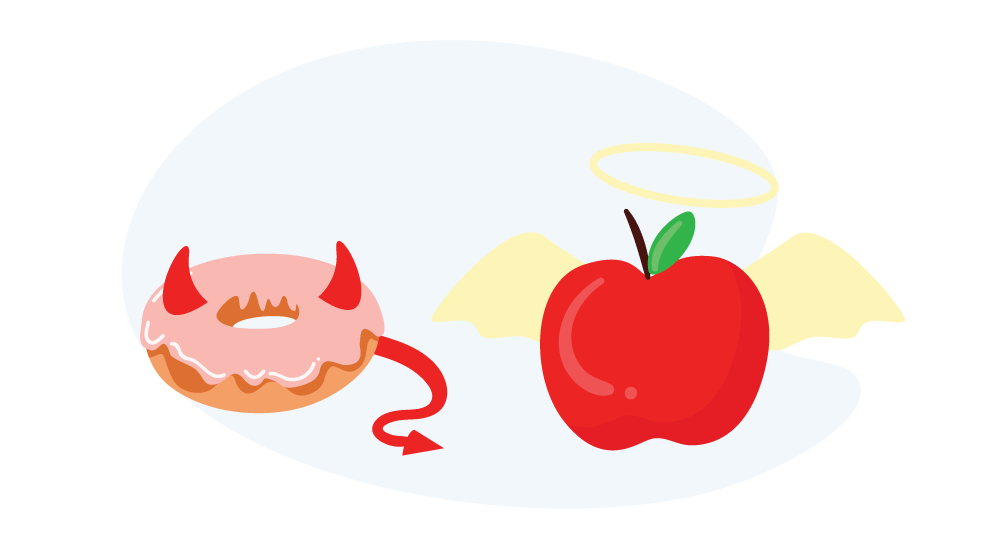What Is A Calorie & Are They All The Same?

The word ‘calorie’ is thrown around a lot…
And even though everyone is pretty familiar with the general concept, we find that many people don’t know what calories really are (only, perhaps, that they should be eating fewer of them).
Basically, when you break it down, a calorie is just a measure of a certain amount of energy.
More specifically, a calorie is the amount of energy that is required to heat up 1 kilogram of water 1 degree Celsius.
Practically speaking, you can think of calories as the stored energy in literally every type of food that you eat.
Different types of food have different numbers of calories, which depends on their underlying macronutrient composition.
A ‘macronutrient’ is just a term that refers to the ‘building blocks’ that make up all food – namely, protein, fat, and carbohydrates.
And each of the 3 macronutrients – protein, fat, and carbohydrates – have a different number of calories per gram.
For instance, 1 oz of broccoli has far fewer calories than 1 oz of cheese.
How Your Body Deals With Calories
When you consume calories in the form of food, your body can only do one of 2 things with them.
It can either burn the calories to meet its energy requirements, or it can store them as fat.
That’s it.
All the calories you eat either get burned or stored. There is no other place for them to go.
Now let’s take a look at how your body might burn some of the calories you eat.
First of all, a good portion of the calories you eat will go to maintaining your body’s most basic functions – such as breathing, your heart beating, and your organs operating properly.
Basically, everything that you need to stay alive!
This is known as your Basal Metabolic Rate (BMR), and is what many people just think of as your metabolism.
Your BMR will vary based on your age, height, weight, and various other factors.
Now after your BMR, another portion of the calories you eat get burned based on your physical activity.
This includes any exercise you do – but also ANY physical activity, including moving around, fidgeting, etc.
So the more exercise you do, and the more physically active you are, the more calories you’ll end up burning.
Finally, any calories that are left over after this will be stored by your body as fat.
So if you consume more calories than your body burns (known as a calorie surplus) you’ll get fatter.
Likewise, if you consume fewer calories than your body burns (known as a calorie deficit), you’ll lose fat.
Are All Calories The Same?
Now you may be thinking that this doesn’t quite add up with other things you’ve heard.
It can’t actually be the case that all calories are treated by your body equally, right?
That a calorie from a piece of chocolate cake is equal to a calorie from a lean piece of chicken?
Well, the truth is that, purely in terms of whether you’ll gain or lose weight, a calorie is almost just a calorie.
The almost part comes in because different macronutrients (protein, fats, and carbohydrates), require different amounts of energy to digest.
This is known as the Thermic Effect Of Food (or TEF for short)
Carbohydrates and fats require anywhere from 5% to 15% of their energy for digestion.
Protein, on the other hand, requires 20-30% of its energy for digestion.
So, all things being equal, you can eat more calories worth of protein than either fat or carbs without gaining weight.
However, at the end of the day, a calorie is just a calorie as far as energy balance is concerned.
That is, if you’re taking in more energy than you’re burning, you will gain weight.
If you’re taking in less energy than you’re burning, you will lose weight.
In fact, a nutrition professor recently demonstrated this very point by losing 27 pounds eating nothing but junk food for several months!
So in this respect, in terms of weight gain or weight loss, it matters a whole lot more how many calories you consume than which specific foods you eat.
Yes, the truth is that even the healthiest foods can cause you to put on fat if you eat too much of them.